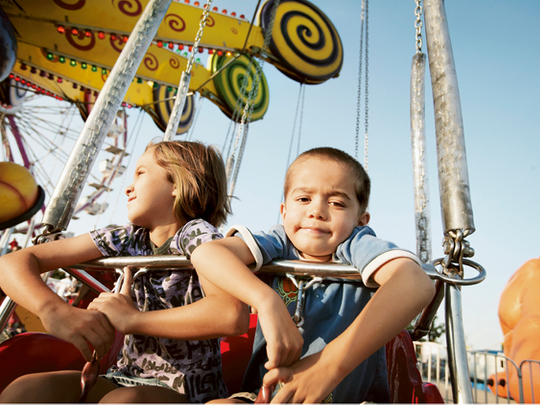
It’s a family day out at a sea life centre and Aria points to a shark swimming in a glass tank over her son’s head. “Look Ross, a shark!” she says excitedly. “A real live shark, just above you!” The eight-year-old looks up, glances at the shark from a distance of three metres, and for two seconds his brown eyes light up with wonder. Then he asks, “What’s next?” His gaze is already fixed on the exit door. It’s at that moment Aria realises there’s nothing she can do to hold her son’s interest for longer than a few seconds. Even when he is face-to-face with a shark, he’s already looking for his next thrill.
“I couldn’t do much more to keep him interested, short of putting him in the tank to swim with the shark or organising a safari holiday,” confides Aria. “The day was a let-down. I breathed a sigh of relief when he was back in the car, playing his Nintendo. At least that made him happy.” But Ross isn’t unusual. He’s typical of a generation of children brought up to expect instant gratification. They want their entertainment right here and right now, and if something that interests them isn’t readily available, they move on in search of something more stimulating. They live their lives fast and they expect people to be lively and vibrant.
“Some children these days have a very short attention span,” says Allison Mitchell, author of The Manic Mum’s Guide to Calm Parenting and Co-operative Kids. “They have constant stimulation – adrenaline is a stimulant – and they have so much to entertain them that they’re not used to having nothing to do. “Just look at the ages that children are getting mobile phones and access to the internet. They have hand-held entertainment at their fingertips and it’s there all the time. The more they have, the more they get used to it.”
As well as technological thrills, children also have a packed schedule of activities, both after school and at weekends. When primary school children write about their weekends, they need extra pages to list all the activities. We parents are smug that we’re giving our children such wonderful opportunities, but are we doing the right thing? “These activities start when they’re babies,” continues Allison. “There are now baby classes in ballet, swimming and even massage. “As the children grow older, parents feel they have to ferry them to dance, karate, football, netball and violin practice, and seize all the opportunities they didn’t have when they were younger.
“The world has become such a competitive place and it’s hard to say ‘no’ if all the other children are doing activities. I often think parents are trying to fill up their children’s CVs from the age of eight!” By taking our children from badminton lessons to choir practice and then on to swimming, we’re encouraging them to live life fast. When every minute is filled with excitement and activity, it becomes a hard act to keep up. Even our holidays, which are intended for rest and recuperation, are packed with wall-to-wall entertainment in kids’ clubs, with our little ones cramming water polo, kayaking and surfing into an average day.
It’s no wonder that when quiet times come, our children complain of being bored and they find old-fashioned activities dull. Eventually nothing will compare with thrilling rides at a theme park.
“When children are exposed to constant entertainment, they lose the ability to entertain themselves,” continues Allison. “They’re not used to having nothing to do, and their curiosity is dulled. “I believe it’s really good for children to be bored. That way, they can rest, have some time out and draw on their imagination. While it’s easy to use hand-held games as your babysitter, it’s actually much better to encourage children to entertain themselves. “Play teaches children about life, and in order to play they need to be curious. Encourage them to play then talk about it afterwards. Curiosity is a muscle that needs to be built up and exercised regularly.”
So how can we encourage our excitement-hungry children to slow their lives down and play the old-fashioned way without becoming ‘public enemy number one’? Parenting expert Sue Atkins suggests we introduce balance into their lives, whatever their age. “Build up the ordinary, everyday things in life, and keep it simple – like going for a walk with your dog,” recommends Sue, author of Parenting Made Easy, How to Raise Happy Children. “It’s about savouring the small things in life and helping children pay real attention to detail. They need to see things, touch them and understand their magnificence.
“Real life isn’t thrilling all the time, and there’s nothing wrong with stability. Don’t worry about being thought of as a ‘fuddy duddy’. Children need to learn to be bored. “If you are totally focused when you are with your children, they will cherish that time and they will love this far more than any computer game. Even if it’s just a half-hour chat in the car on the way to football training, sitting on their bed at the end of the day and talking to them about what they’ve been up to, or getting down on the living room floor and playing with their toy soldiers – you will create a bond that they will remember for years to come.”











